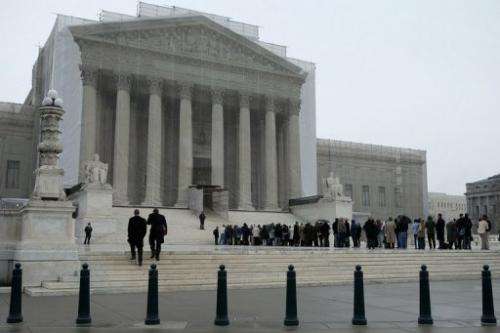US top court rejects appeal in $220,000 piracy case

The US Supreme Court refused Monday to take up the case of a woman ordered to pay a $220,000 fine for illegally downloading music off the internet.
The country's top court upheld without comment the verdict against Jammie Thomas-Rasset in the long-running, high-profile digital piracy case.
Thomas-Rasset, a mother of four from Minnesota, has been fighting a court battle since 2006 over violating intellectual property laws in her use of the file-sharing program Kazaa.
Three trials and multiple appeals later, she has been ordered to pay amounts as high as $1.92 million—or $80,000 for each of 24 illegally downloaded tracks. After the third trial, at which the jury awarded the music companies $1.5 million, the amount was reduced on appeal to $220,000.
That's the amount in damages Thomas-Rasset was originally ordered to pay after her first conviction, but the judge who presided over that trial threw out the verdict calling it "wholly disproportionate" and "oppressive."
In the mid-2000s, the Recording Industry Association of America and major music labels brought suit against thousands of people for illegally downloading and sharing music, with most agreeing to settlements of between $3,000 and $5,000.
Thomas-Rasset, however, has consistently refused to settle the case.
Only one other defendant, Boston student Joel Tenenbaum, refused a settlement. Tenenbaum was ordered to pay $675,000, a fine the Supreme Court also refused to review in May 2012.
In December 2008, the RIAA said it will stop suing people who download music illegally and focus instead on getting Internet Service Providers to take action.
The move away from litigation represented a major shift in strategy for the music industry group, which had filed lawsuits against some 35,000 people for online music piracy since 2003.
Last month, a coalition of the largest US Internet service providers and the music and film industries began rolling out an anti-piracy effort informally known as "six strikes," which will use warnings and could result in slowed or suspended Internet connections for violators.
(c) 2013 AFP


















